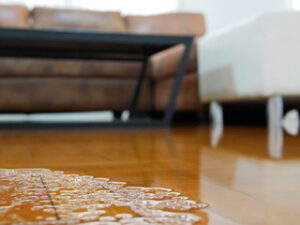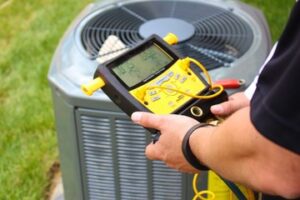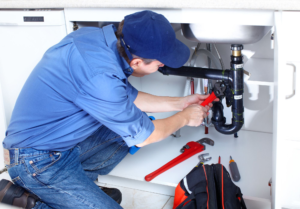Salt Lake City Water Damage is one of the most destructive and costly issues homeowners and property managers face. Often the causes of water damage are preventable.

Learn what to look for and avoid, and how to deal with water damage once it occurs. The first step is identifying the problem by observing discoloration, mold, warping and musty odors.
Water damage is a serious issue that can be costly to address and requires time-consuming repairs. However, implementing preventative measures can reduce the chances of this type of damage occurring and help minimize the effects.
Plumbing problems are a leading cause of water damage, with aging systems and poor maintenance contributing to the risk of leaks, burst pipes, and broken fixtures. Regular inspections and prompt repair of plumbing issues can reduce the chances of water damage in homes.
Commercial buildings can also be susceptible to water damage, with valuable inventory and equipment at risk for deterioration and loss. Items such as electronic components in lifts, expensive construction machinery and supplies, specialized manufacturing equipment, and even electrical boards can be irreplaceable after suffering from water damage.
Preventative measures for commercial properties should include the following:
Develop a Prevention Plan – Include steps to identify vulnerable exposures and implement a routine maintenance schedule to help mitigate the risks of water damage. This should include a map of all water/liquid systems with all shut off control valves identified and marked so they can be easily located in the event of an emergency. Schedule annual inspections of plumbing systems to identify potential vulnerabilities.
Appliance-related leaks account for a large percentage of water damage claims, so it’s important to inspect and maintain appliances regularly. Check the hoses and connections of washing machines, dishwashers, and refrigerators, replacing them as needed to prevent leaks.
Water-resistant building materials and piping can offer an additional layer of protection. These materials should be installed in areas that are susceptible to moisture, such as basements and crawl spaces.
Educate Employees – Instruct staff on the importance of protecting themselves and property from water damage, and provide training on how to identify leaks and operate basic plumbing systems. Instruct them on the significance of shutting off water and electricity in the event of an emergency, as well as how to properly document damages for insurance claims.
Seasonal preparations should also be included in the prevention plan. For example, winterizing homes by insulating exposed pipes helps reduce the risk of freezing and bursting. It is also a good idea to drain outdoor hoses and check irrigation systems before the winter arrives.
Leak Detectors
While floods and rainstorms are often out of homeowners’ control, leaky appliances and failing water heaters can be prevented with smart home technology. Leak detection systems monitor and alert homeowners to leaking or freezing pipes, making it easy to take quick preventive measures.
A smart leak detection system consists of a sensor that is installed inline in your plumbing system and a valve that shuts off your home’s water supply upon detecting a leak. It’s a simple, effective way to protect your home against water damage, and it helps prevent costly repairs from occurring before they’re detected.
In addition to preventing expensive repairs, these systems can also help you save money by reducing your home’s energy costs. According to the EPA, around 10 percent of homes have water leaks that waste 90 gallons or more of water per day, which can result in high utility bills and significant financial losses.
The Resideo L5 WiFi Water Leak Shutoff Valve works in conjunction with a wireless water sensor that is linked to your home’s internet network, allowing you to remotely control the device from anywhere. It sends instant notifications and allows you to customize your water management with preset shutoff locations that can be set from a smartphone app. This functionality proves invaluable for second property owners, renters, and those coordinating with plumbing professionals away from the home.
Adding water sensors is a simple, cost-effective way to reduce the risk of costly repairs due to leaky or frozen pipes. With a variety of options available, it’s important to choose the best one for your needs. For example, a water leak sensor for air handlers can be especially useful in identifying potential problems in unconditioned spaces like the attic or basement.
By taking a few proactive steps to mitigate the risk of costly water damage, homeowners can safeguard their properties against potential disasters. The cost-saving benefits and peace of mind that come with this system make it a valuable investment for anyone looking to secure their investments and preserve their valuable belongings. For more information about incorporating a smart leak detection system into your home, reach out to a licensed professional today.
Appliances
When people think about water damage, they usually imagine storms and natural disasters. While these are common causes of water damage, many household appliances can also lead to leaks. These leaks can result in structural issues, microbial growth and other problems.
Fortunately, most appliance leaks are preventable. You can help to reduce the risk of leaking appliances by performing regular maintenance and inspections on them. For instance, washing machines and dishwashers should be cleaned regularly to avoid mineral build-up. You should also descale your water heater as recommended by the manufacturer. Additionally, it’s important to replace worn-out hoses before they break.
Another way to prevent appliance leaks is to keep them away from the water supply line, which can be a source of leaks. You should also anchor and elevate outdoor appliances like air conditioning units to protect them from floodwaters. Additionally, you should check for signs of a leak, such as puddles or water spots in and around your appliances.
If you notice that an appliance is leaking, turn off the water supply to that appliance and shut off the power. Once the appliance is unplugged, it’s important to clean up the water and make sure that all parts are dry before using it again. If you don’t have a leak detection system, consider installing one to help you catch problems early and prevent costly damage.
Appliances are prone to leaks due to their complex design and the fact that they use water to function. Therefore, they can be difficult to repair once they begin to leak. This is why it’s a good idea to invest in appliances that are durable and low-maintenance.
If you want to save money on appliances, shop for appliances that are durable and energy efficient. It is also a good idea to get appliances that are made by reputable brands as they will have better warranties. If you are unsure what type of appliance to purchase, consult with a professional and ask for advice. The right appliance can provide you with years of service while saving you money on your utility bills.
Plumbing
The plumbing system in your home is the house’s circulatory system, carrying water and sewage to and from sinks, toilets and showers. It is usually hidden behind walls and in less-traveled areas, making it hard to catch issues before they turn into a full-scale disaster. However, many problems can be prevented with regular maintenance and occasional repairs.
A leak or burst pipe can lead to serious problems like mold and mildew, rotting wood, and structural damage to the building, which can result in costly repairs. Water damage is one of the most common home insurance claims and can be caused by many different events. Floods from storms, overflowing water heaters, broken appliances, and clogged drains are all common causes of water damage.
While some events that cause water damage are out of a homeowner’s control, many can be avoided with regular maintenance and attention to warning signs. Using a water leak detector, checking appliances regularly for issues, and having a reliable 24-hour emergency plumber on call can help reduce the risk of costly water damage.
Water damage is a major issue that often occurs when you least expect it. Keeping up with year-round maintenance can also help prevent water damage from occurring and save you money in the long run. If you are looking for a way to keep track of maintenance in your home, the free Hippo Home app gives you an overview of your home along with personalized checklists to improve areas that need attention. Plus, with Hippo Home Assist, you can get access to 24/7 home experts whenever you have questions or concerns.
To help prevent leaks and other problems, inspect caulking around showers, tubs, and sinks on a monthly basis, checking for cracked or worn-out spots. It is also important to check for musty or sewer-like smells, which could indicate that there are leaking pipes or other issues. Additionally, don’t pour cooking grease down your drains as it coagulates and clings to pipes, creating severe damage or blockages.








